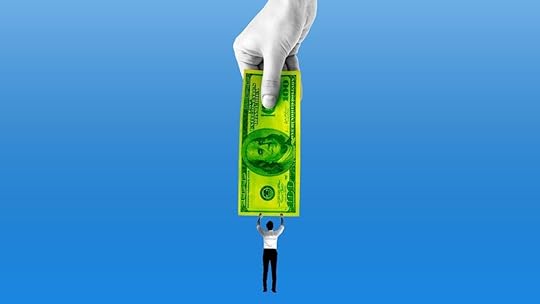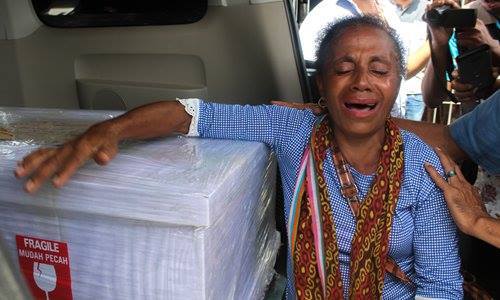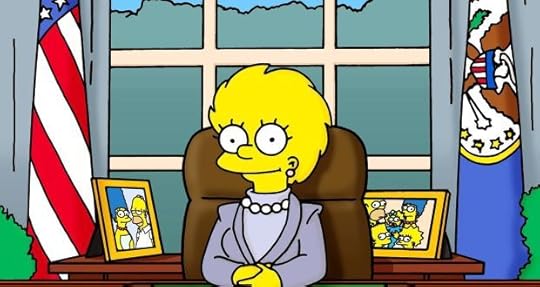Syed Ahmad Fathi's Blog, page 23
June 21, 2019
Ang Swee Chai – From Christian Zionist to Palestinian Activist – Book Review

Sad, angry, depressed, hopeful, were few of the thousands of emotions aroused reading ‘From Beirut to Jerusalem’, a memoir by Ang Swee Chai. Through her passion, love, perseverance, bravery, and determination, the world is indeed greatly indebted for her work both as a doctor and also as a witness to the massacre suffered by Palestinian refugee in Sabra-Shatila during the Israeli invasion of Lebanon in 1982.
Her maternal grandfather was a
conservative and traditionalist, he believed that an educated woman will not
make a good wife. But her mother was a defiant daughter, register herself to
school and went to become a teacher. Her father ran away from his grandfather
in mainland China refusing to marry a girl arranged for him and went to became
a journalist in Singapore. During the Japanese invasion on Malaya, both of them
met in the Outram Road prison in Singapore.
After Japan was defeated, they
settled as a family. When her mother was pregnant, she went back to her
hometown in Pulau Pinang to give birth to her. She was raised in Ayer Itam
district in Pulau Pinang with her younger brother, Lee Cyn. They eventually
moved back to Singapore following their father’s work. Raised in poor family,
her mother raised her with discipline, she then continues her studies in
medical school. She married Francis Khoo, a lawyer and activist. Francis was
accused to be a communist, he fled Singapore in 1977 avoiding arrest under
Internal Security Act (ISA) and took refuge in Britain.
Her parent was areligious but they
allowed their children to choose a religion of their own. She embraced
Christianity during her studies in medical school.
Ang was well versed about Israel
even before volunteering. The church has taught her that Israel was God’s
chosen people, and the return of the Jew to Israel was a verification of
biblical prophecy. There are many reasons why she supported Israel, one of it
was the oppression of the Jew by the Nazis, and the Nazis were Japanese ally
during world war, with the creation of Israel the Jew can defend themselves,
its a realization of justice from God.
She was prejudiced towards
Palestinians, the church has told her that they were terrorist, an old foe, the
Philistines of the Old Testament. She was a bigoted, self-righteous
fundamentalist Christian, like many Christians she rejoiced in the military
triumph of Israel. But that morning in Sabra and Shatila, God destroyed that
self-righteousness.
In her memoir, she recreated that
journey, from a bigoted Christian fundamentalist to peace activist and friend
of the Palestinian people. It started in 1982 when she watch the horror of
Israeli invasion and bombardment of the people of Lebanon through British
television. The killing of women and children shook her to the core, she
resigned prom her hospital in Britain, pack her bag, and went to Beirut as a
medical surgeon volunteer.
In Beirut, Dr. Ang Swee Chai served
at Gaza Hospital, Palestinian refugees named their hospital with their town in
Palestine, its a symbol of longing to their homeland from where they were
expelled by the Zionist colonialism. Many of the camp residence were refugees
who fled the ethnic cleansing of Palestine in 1948. The hospital situated near
the Sabra and Shatila camp. Here, she witnessed the kindness of Palestinian
people, the gentleness they showed toward their guest, she also saw their
courage, resolution, patience, and resistance against Israeli aggression and
occupation.
Before the Sabra and Shatila massacre, Palestinian fighters from Palestinian Liberation Organization (PLO) agreed to evacuate from Beirut as a condition of a ceasefire. Dr. Ang noted “this is the first time that I realized that PLO fighters (who she preconceived as a terrorist) have a home and family in Lebanon, they withdraw and left their wives, children, siblings and parents”. The Palestinian gave away their weapon, the roads are cleared from any barrier. On 14 September 1882, water and electricity supply were restored. They believed in the promised of United States and western powers, that they will be let to live unharmed. They were wrong.
The next day, the camp were
encircled by Israeli army and under siege, Israel coordinated Phalangist
militia to enter the camp and massacred the people, children, baby, women, old
people were brutally murdered. Dr. Ang realized the scale of barbarity and hope
that the PLO did not withdraw on the first place, so they can defend the camp
people. But it was too late. She recollected this barbaric massacre in her
memoir which was first published by Grafton Books & Times Book
International in 1989.
Reading her memoir really shock
reader’s emotion to the core, your tears will be flowing like a river as she
collected her horror, by page 70 your tear will run-out dry, there is so much
to take. The story of a people exiled from their homeland in 1948 only to be
massacred again by the Israelis in 1982, Dr. Ang could not help but ask, where
should they go?
She recalled a story on the height
of the killing, there was a woman and a child brought into the hospital, the
woman was shot on her stomach and badly wounded. After operation, she needed a
blood transfusion. She overheard that the nurse told the doctor that the blood
pint given to her was the last, and the child need blood transfusion of the
same blood type. She refused the blood pint so that the child can have it and
asked for painkiller instead. She died shortly after.
She also written a story about a boy
named Mahmoud, who was her patient before the massacre, he injured his wrist
whilst helping his father rebuilding their house. After the massacre, when she
walked down the road in the camp, Mahmoud appeared, ran toward her and hug her,
he was so happy to know that she was alive. Soon, children began to appear
around her, they saw her camera and asked for a photo, they wanted the world to
see that although their house have been destroyed, their parent massacred, they
still can smile and raised their hand with victory sign. Their courage was
astonishing.
Reflecting on the Palestinian tragedy, she wondered why Palestinians need to suffer to accommodate the victim of Nazis persecution and European racism? At the end of the memoir, in the post-script, she also reflected on her Christian belief. She wrote “[I was] a bigoted, self-righteous fundamentalist Christian. I thought that I knew the Bible, and God was on our side. I rejoiced in the military triumph of Israel. On that morning in Sabra and Shatila, God destroyed that self-righteousness. Many of my Zionist Christian friends shunned me, but I am no longer intimidated by all this. I have seen a different face of God – that of love, compassion, and grace. He promised Ishmael would be a father of many nations. Palestinian are the children of Ishmael and the children of Abraham. He will wipe away all tears and bring us home..next year in Jerusalem.”
Dr. Ang Swee Chai then became a co-founder of Medical Aid for Palestinians (MAP), she became an activist and regularly invited to talk about the plight of the Palestinians. Her experience in Lebanon changed her life completely, she became the witness of Sabra-Shatila massacre which taught her to never relent in the face of injustice. In her letter to her husband, Francis Khoo she wrote “we are just two small persons in the history of liberation..I saw the face of death, I saw their power and ugliness, but I also saw fear deep inside their eyes, the children of the new generation will come, and they are not afraid”.
June 18, 2019
Samakan fi perubatan dengan gunting rambut – manifestasi kebodohan

Baru-baru ini Malaysia digemparkan dengan desakan doktor-doktor klinik swasta yang mahu menaikkan cas konsultasi. Walaupun terdapat seribu satu alasan yang mungkin diterima akal, seorang netizen telah memberikan ulasan yang terlalu bodoh bagi menghalalkan kenaikan harga ini dengan menyamakan fi perubatan dengan fi gunting rambut. Mari kita hayati ulasan komen tersebut bersama.
Pertama, khidmat gunting rambut merupakan satu khidmat yang optional, rambut kalau tak gunting tak mati. Paling kuat kena potong dengan warden bila balik asrama, bagi yang bekerja mungkin kena amaran dengan makcik HR di pejabat, kalau balik kampung paling kuat kena tegur dengan opah, semua kemungkinan ini tak membawa pada kematian.
Kedua, kalau pun wujud kartel persatuan gunting rambut sedunia dan mereka menetapkan harga potongan biasa RM10, rakyat ada option lain. Contohnya mintak tolong makcik jiran sebelah potongkan rambut.
Ketiga, kalau makcik jiran sebelah tak nak, sebab dia benci kau yang suka dengar Spotify tak pakai headphone setiap malam, boleh mintak tolong ahli keluarga, rakan, adik angkat, kawan pejabat, atau siak masjid tolong potongkan.
Keempat, kalau semua orang tak nak tolong, masih ada option untuk pergi Giant, beli mesin gunting rambut dan potong sendiri. Kalau tak cantik macam rambut player Turki, Hasan Sas pun takpe. Tak mati. Seminggu dua rambut boleh tumbuh balik dan cuba lagi.
Kelima, kalau Giant tutup. Boleh pergi beli dekat Tesco
Extra, Billion, atau Mydin.
Tapi perkhidmatan kesihatan adalah khidmat asas. Dalam bahasa Inggeris basic atau fundamental needs. Dalam bahasa Arab Al-Assasiyyah. Sebab itu dalam konflik kemanusiaan bantuan yang dihantar adalah makanan dan perubatan, takda lagi orang gila yang hantar bantuan khidmat gunting rambut dalam krisis kemanusiaan.
Khidmat perubatan ini tak boleh dilakukan sendiri. Makcik sebelah rumah kita tak pandai nak diagnose penyakit. Siak masjid tak pandai tolong x-ray tulang yang patah. Semua ini perlu dilakukan oleh doktor professional.
Perkhidmatan kesihatan ini majoritinya ditanggung kerajaan.
Doktor ditaja dengan biasiswa kerajaan. Universiti awam yang latih doktor
diberi subsidi dan bantuan kerajaan. Hatta yang di swasta pun banyak yang dapat
pinjaman pembelajaran kerajaan. Latihan lepas belajar disediakan kerajaan.
Semua ini duit rakyat, untuk masyarakat, perlu dikembalikan pada masyarakat.
Kita boleh terima hujah kenaikan fi jika disebabkan faktor
kenaikan kos mengurus klinik walaupun masih boleh dipertikaikan betul ke
kebanyakan klinik rugi? Kalau naik terlalu tinggi boleh dipersoal dari sudut
etika dan moral.
Orang cetek akal sahaja samakan fi perubatan dengan gunting
rambut.
May 31, 2019
Economyth – pseudo-facts disguise as an economic theory, fundamentals, and models – Book Review
 Economyth – pseudo-facts disguise as an economic theory, fundamentals, and models.
Economyth – pseudo-facts disguise as an economic theory, fundamentals, and models.The
book opens with a foreword and preface of the new version which basically gave
a summary of what had happen since the first publication in term of reception.
The work was cherished by heterodox economist and sparked debate over the way
of economics was taught as a subject. This was in light of the economic crash
in 2008-09, which was not predicted by many ‘experts’.
The
idea however was rejected by mainstream neo-classical economist due to the fact
that it challenges the established theory.
David
Orrell blamed the abused of mathematical models, used by bankers, analyst, and
economist, not just the models cannot predict the crash, he argued that the
model helped cause the crash. But he went further, not just the mathematical
models were flawed, the fundamental theory in which we understand economy is
plain wrong.
Orrell
maintained that whilst economist based their economic law from reductionist
model of Newtonian physics, humans are not like atoms, they are not rational
and cannot be modelled. He is not alone on this, Ha Joon-Chang also maintains
in his book that economics is not a science like physics.
But
while Chang criticized free-market economics, Orrell went further and dispelled
the fundamental ‘law’ of economics – the supply and demand theory. He insisted
that the supply and demand curve, which was taught in every economic school,
has never been proven empirically with real data, the curve is “like a unicorn,
always drawn but never really seen”.
The problem with the curve is that it exists on ceteris paribus – other things held constant, but in real life, this was never the case, supply and demand always change and dance together. The danger of perceiving the concept as ‘law’ will have a severe consequence in real life, we will be searching (wasting our time) for a creature that is non-existent.
Orrell
then pointed his gun to the ‘efficient market’ hypothesis which assume that
people are rational motivate by profit, have access to market data, and
independent in making decisions. This theory take root from atomic theory which
equate individuals like a particle of atoms. He lamented that this is
fundamentally wrong as human always did irrational things and they communicate,
advocate, and influence others, to create a mathematical model out of
individuals based on atomic theory will lead us to a catastrophic trap. This
trap made IMF made a comment in 2007 that “world economy will have a robust
growth in 2007 and 2008” before they eventually crashed.
He
then cited evidence from the UK housing market, where people under constant
pressure from advertisement to buy house and made profit through speculation.
People buy houses more than they needed, to make profit. This creates a
psychological pressure and induced others to follow suit, they did not act
rationally, but emotionally fearing of missing out, and behave in “herd”
behaviour. Obviously, you can’t make mathematical model from human emotions.
The notion that market will regulate itself in mathematical precision is
therefore highly unlikely and nowhere to be seen.
One
of Orrell point is to make finance less efficient, this point was in common
with the call made by economist, Ha Joon-Chang in his book about problem with
capitalism. Orrell argued that by abolishing the Glass-Steagall Act which
separate daily commercial bank with speculative investment bank make the
financial system more integrated. Therefore, default is contagious, one failure
can drag the whole system down. He called for re-compartmentalization of these
banks, although it reduces efficiency, it introduced a control mechanism to
limit failure. Another aspect that might save us in time of crisis is
redundancy, in nature this can be observe on the extra kidney we carry, while in
the economy, this mean that banks need to have limit to their gambling risk and
hold extra reserve to survive the bad time.
The economy is unstable according to Orrell, to elaborate this argument, he explained the banking system in the word of economist Hyman Minsky who contended that the borrower can be categorized to three, first the hedge, this is a regular borrower who can pay their principal and interest. Next, the speculative, who can only service his interest such as the mortgage borrower. Than the final one, the ponzi, who had a lot of hope, can only pay if the asset price continue to rise. As the debt continue to accumulate, it will eventually burst, starting with the ponzi, followed by the speculative, and finally dragging down the hedge – this will be the Minsky moment.
Financial
system is not a natural system, we had a say and can better engineer them.
Orrell suggest that we model them from the current extreme form which focussed
on short-term profit towards a more normal ones which gave lesser profit but
much more resilient from crashes, he then laid his suggestion on how to achieve
this goal. One of them, is create a barrier by testing financial product to
understand their risk before releasing them to market. Regulation, contended
Orrell, will caused some inefficiency but it gave stability, he then poked the
concept of the ‘invisible hand’ by saying that if we looked at our own hand, it
is heavily regulated – from temperature to cell salinity – putting economist to
shame.
Other
interesting discussion in the book by Orrell is about the differences of
government monetary policy between Milton Friedman and John Maynard Keynes.
Whilst Friedman inherit the free-market ideology and anti-regulation propagated
by the Chicago boys, Keynes expanded government involvement in the economy and
advised the boosting of government spending during recession to compensate
demand. He also took a punch on Friedman stating that its ironic he opposes
government intervention but at the same time the Chicago boys sustained
themselves in part by government grants.
Many
of his argument do ring a bell, underlaying assumption in economics such as
people are rational is somewhat laughable. Human are not computers, they are
highly emotional, and because humans are the building block of the whole
economy, the economy must be emotional, we can’t exclude the most important
trait of human being, produced a model out of it and applied it to the real
world.
But
there is also an oxymoronic argument put forward in his book. In one of the chapters
he tried to make a case that the economy is gendered, he even brought forward
the concept of yin and yang claiming that the aggressive bet and speculation
are attributed to male trait (female did not gamble?). But while trying to make
his point, he took a sharp turn and wrote that ‘it would be terribly
reductionist to blame…solely on people with a tendency to grow facial hair’.
So which is it, is it really gendered or it is a reductionist assumption?
Current
economic theory is not a science, Orrell contended, but rather an ideology
peculiar to a certain period in history because it does not add up to the
empirical data and made various assumption which does not hold true in real
life situation. He went on outlining the similarity of the global economy with
a ponzi scam by Bernie Madoff. Such similarities includes a complicated but
plausible story, trust, incentives, a network of rich and powerful people,
influence with regulators, illusion of growth, and an outdated machine (a price
theory that said price is always right).
Orrell
also called ethics to be included in the economic equation, as there are many
aspect that will lead to harmful consequence if the whole decision was left to
market to decide. For example, he asked if we leave resources such as oil for
investment company such as pension fund to decide, why should they put a cap on
production? Their motive is short term gain without consideration of long-term
environment decays. These are the area that need to be addressed by ethics in
the form of government intervention and regulation.
I do
find one question fairly amusing. When he tried to make a case that other field
of studies actually needed to construct new economic model, he asked a question
‘are philosophers in agreement that market can make ethical decision?’ This
question, I think, is also an oxymoron. Philosophers were always in
disagreement almost about everything between them.
Finally, concluding his book, he asked readers to confront every economist in their lives and observe their reaction. They can reply in denial, anger, depressed, or in good case, accepted the criticism and chartered a new path. For a change to happen, we need to acknowledge first that the problem exist.
This article is a review of the book ‘Economyths: 11 Ways Economics Gets it Wrong’ by David Orrell.
May 27, 2019
Ali, Saiful Nang, dan Prof. Ilan Pappe
 Gambar sekadar hiasan semata-mata.
Gambar sekadar hiasan semata-mata.Ali merupakan peminat Saiful Nang, setiap hari beliau akan like gambar-gambar instagram SN juga status-status SN di facebook. Ali sangat teruja untuk melancong ke Tel Aviv dan bergambar dengan tembok pemisah yang merupakan simbol penindasan warga Palestin.
Beliau bertanyakan pendapat saya, dan meminta bahan bacaan untuk lebih memahami konflik Israel-Palestin. Kecintaan Ali terhadap ilmu dan kebenaran membuatkannya sanggup menaiki motor kapchai dari Merbok ke Sungai Petani hanya demi sebuah buku.
Saya pinjamkan kepada Ali buku The Ethnic Cleansing of Palestine tulisan Prof. Ilan Pappe, yang merupakan sejarawan dari University of Exeter. Pappe merupakan ‘The New Historian’ sebaris dengan sejarawan seperti Benny Morris dan Avi Shlaim. Mereka merupakan revisionist yang menulis semula sejarah Israel secara objektif tanpa naratif propaganda Zionis.
Ya, Pappe sendiri berbangsa yahudi, tetapi beliau menentang keganasan dan pembunuhan yang dilakukan oleh Israel ke atas bangsa Palestin. Pappe dalam bukunya menggunakan sumber-sumber dari arkib Israel seperti jurnal David Ben-Gurion dan dokumen tentera.
SN mengatakan bahawa Israel mahukan keamanan dan mereka mengambil tanah berdasarkan undang-undang, rule-of-absence. Tapi ada soalan besar yang SN tinggalkan dalam posting beliau, iaitu bagaimana tanah-tanah yang dirampas itu boleh menjadi absence? Tanpa penduduk?
Disinilah kelompongan yang perlu di isi. Tanah itu ditinggalkan selepas ia diserang oleh para-militeri yahudi seperti Haganah, Irgun, dan Stern Gang, para-militeri ini kemudian menjadi IDF hari ini. Malah ahli fizik terkenal, Albert Einstein pernah mengutus surat mengecam keganasan teroris yahudi. Ilan Pappe dalam bukunya menceritakan dengan terperinci kampung demi kampung, bandar demi bandar, yang dibakar, diroboh, diletupkan, dan penduduk yang dibunuh dan dihalau. Antara pembunuhan beramai-ramai yang mendapat liputan dan terkenal adalah pembunuhan di perkampungan Deir Yassin. Penduduk yang di halau ini tidak dibenarkan pulang hingga hari ini, walaupun mereka masih menyimpan kunci rumah mereka. Dihalau dan dihalang pulang, tentulah menjadi absence. Cintakan keamanan?
Kemudian SN membawakan video seorang lelaki arab entah siapa yang mengatakan sumbangan kepada Gaza sebagai sia-sia dan berterima kasih Israel membina sekolah. Sebenarnya ini tidaklah aneh. Dalam buku beliau, Pappe menceritakan berkenaan dengan talibarut di setiap kampung, yang memberi maklumat kepada pengumpulan data inteligensia yahudi. Data ini dinamakan ‘village files’ yang sangat terperinci bagi setiap kampung, dari jenis tanah, jenis pokok, aerial survey, jumlah penduduk, semuanya dikumpulkan bagi koordinasi pembersihan etnik 1948. Pengumpulan data ini dilakukan secara rahsia tanpa pengetahuan British yang menguasai Palestin pada ketika itu.
Untuk kepentingan bisnes, dia kemudian menunggang fatwa mufti berkenaan ziarah masjidil Aqsa. Tetapi adakah fatwa itu termasuk lawatan ke Tel Aviv, kibbutz, tembok pemisah? Bagaimana kita boleh posing gembira bersama tembok apartheid sedangkan seluruh dunia mengecam polisi rasis dan apartheid ini?
Buku Ilan Pappe ini lebih kepada sejarah pembersihan etnik 1948, yang masih berterusan hingga hari ini. Antara buku lain yang saya minati adalah tulisan Dr. Norman Finkelstein bertajuk Beyond Chutzpah yang mendokumentasi aktiviti kezaliman Israel. Finkelstein merupakan seorang yahudi, ibubapanya merupakan survivor Holocaust, tetapi beliau tidak rela Israel menunggang Holocaust untuk menghalalkan penindasan terhadap bangsa Palestin. Tetapi mungkin buku itu kita akan bincangkan di lain hari, selepas Ali habis membaca buku yang dipinjamnya hari ini.
May 24, 2019
Malaysian Education System Does Not Nurture Talents

For almost a week now Malaysiakini joined liberal media outlets attacking our education minister. Malaysiakini trying so hard, publishing Op-Ed on daily basis attacking Maszlee. Its funny in some way looking at their behaviour.
I’m not a fan of Maszlee, I really not. So I will not use the pathetic tagline such as “A rakyat just like you”, like the one did by the PPBM member working in the ministry trying to disguise himself as an ordinary people.
As usual the commentators joined in spewing hatred in the comment section, a hatred that has been sown by the liberal media all along. I don’t need to mention the race of this hate spewing commentators, its obvious, you can look at it yourself.
I’m intrigued by one of the comment by Michael Yeoh, that our education system does not nurture talents, is it?
We have Dr. Wan Wardatul Amani the first Malaysian to launch a NASA satellite. Our astrophysics PhD student Nur Adlyka Ainul is a member of a team that discovers hidden supermassive black hole, an achievement which broke the internet. We also have sent our own astronaut to space!
If we look at their school background, they came from national school system. Adlyka went to Sekolah Rendah Kebangsaan Sultan Abu Bakar (2) Muar and Sekolah Menengah Kebangsaan (Perempuan) Sultan Abu Bakar. Our astronaut went to MRSM Muar. They are the product of national school system.
Of course our school system has flaws, no education system in the world is perfect, not even the Finnish system. But that does not mean that we did not nurture talent. We should always improve and enhance them.
But when you did not like apple and went to say that apple is not a fruit. You are nowhere near to any talent.
May 1, 2019
Ahlan Wa Sahlan Ya Ramadhan

Alhamdulillah syukur ke hadrat Allah SWT di atas nikmatnya yang melimpah ruah buat kita semua. Selawat dan salam ke atas junjungan Nabi Muhammad SAW.
Penantian kita kepada Saiyidus Syuhur hanya
berbaki 3 hari lagi. Sebagai umat Islam, kita seharusnya berasa gembira dengan
kedatangan satu bulan yang penuh dengan barakah sebagai tanda kasih dan cinta
dari Allah SWT kepada hamba-hambanya.
Rasulullah SAW pernah bersabda:
“Seandainya manusia mengetahui
keistimewaan Ramadhan, nescaya mereka ingin supaya sepanjang tahun itu adalah
Ramadhan.”
Sabda Nabi Muhammad SAW di atas jelas menunjukkan bahawa bulan Ramadhan ini adalah bulan yang mulia dan istimewa bagi seluruh umat Islam. Sedangkan ada diantara kita yang merasa terbeban dengan tuntutan ibadah puasa yang bakal menjelma. Apakah kita mahu tergolong dikalangan orang yang zalim dan kufur pada nikmat Allah SWT?
Sebagai seorang hamba yang tiada daya, kita
sering kali lalai dan tidak pernah terlepas dari melakukan kesilapan. Di dalam
kita berusaha untuk menjadi seorang hamba Allah yang taat dan patuh pada suruhannya,
ada kalanya jasad dan rohani ini tetap terikat dengan dosa. Maka perlulah kita
sedar bahawa bulan Ramadhan ini merupakan satu nikmat dan peluang yang
dikurniakan Allah untuk kita memohon ampun kepadanya disamping mengubah diri
untuk menjadi seorang mukmin yang soleh.
Daripada
Abu Hurairah RA lagi bahawa Rasulullah SAW bersabda : “Apabila sampai bulan
Ramadhan, pintu-pintu syurga semua dibuka, pintu-pintu neraka pula ditutup dan
diikat serta dibelenggu syaitan dan iblis.” HR Bukhari & Muslim.
Sama-sama kita perbanyakkan amal di sepanjang bulan Ramadhan ini. Semoga kita semua dilindungi dan diredhai Allah sentiasa.
Ahlan Wa Sahlan Ya Ramadhan.
April 22, 2019
Surat Dari Praha

IMDG Rating : 7.3/10
Author Rating : 8.5/10
Sebuah filem oleh Angga Dwimas Sasongko dan diterajui oleh Julie Estelle dan Tio Pakusadewo yang saya rasa antara filem bergenre historical & love terbaik dari Indonesia. Pembawaan watak yang begitu menyerlah dari Tio, selaku seorang sarjana nuklear yang puluhan tahun bekerja hanya sebagai janitor, membuatkan filem ini penuh dengan emosi yang berjaya disampaikan ke jiwa penonton.
Plotnya berkisar tentang hubungan kekeluargaan yang pudar, penolakan Orde Baru Suharto dan survivability sekelompok nasionalis di bumi Prague.
April 20, 2019
Income inequality by Matthew P. Drennan – Book Review

What was missing in the economic
theory that lead to the financial crisis in 2008-09? This was the first
question Drennan want to answer in this book. His thesis is that income
inequality plays a role in the lead-up to the financial crisis by maintaining
consumption through surging household debt. The second question he asks was
‘Why the economist get it wrong?’. Drennan’s answer to the second question is
that the consumption theory of neo-classical economics does not include income
distribution to their economic theory.
To prove his points, Drennan brought
forward econometric evidence to link income inequality with the financial
crisis. He also used various set of data to show that many people resort to
debt to maintain their consumption, meaning that people borrow more money to
buy the necessities to maintain their lifestyle. He also present historical
data as evidence to show that the 2008-09 crisis is not something new and has
happen before.
Drennan also noted that the two
feature that were on the rise leading to financial crash were the stagnant
growth of income and income inequality – although this two do not necessarily
occur together. Although Drennan try to back his argument with data and statistics,
layman reader will not find this useful, understandable, and almost definitely
lost in the process.
What are the possible causes of
rising income inequality? Asked Drennan. Economist pointed out that one of the candidates
is globalization, but he cast doubt to this theory as other countries such as
Japan, Germany, and France were exposed with the same globalization forces but
does not produce higher income inequality. Other candidate favoured by
economist to explain income inequality is skill-biased technological change
(SBTC). This include higher order specialization, for example box mover can learn
to operate forklift easily, but factory worker might have problems changing
their career to higher-order specialization such as a programmer. Some economist
listed SBTC as the cause of the rising income inequality.
But all these candidates do not give
the whole picture. The more compelling cause, is the institutional structure.
Drennan noted that as the economy turn from manufacturing to service economy, the
labor union diminished. This is because the service sector does not have a
strong labor union traditionally. The structure of the law also plays important
roles in containing the labor union force, without them worker have a lower
protection and had to accept lower wages as they don’t have any bargaining
power.
Then there is government
intervention. Contrary to free-market ideology, that income stabilize in its
current level due to rigorous market forces, there are many government
legislation interferences that favors the rich and enlarge the income
inequality gap. Among the law includes treatment to corporate stock option
award, access to bankruptcy, copyright and patent protection, to name a few.
Various conservative think-tanks served as an advocacy lobby to ensure
government keep policies for the benefit of the rich, their objective is
rent-seeking – spending money not on production of product or service but to
take advantage and enlarge their own economic pie at the expense of someone
else’s share.
After presenting his theoretical
background, Drennan continue with the data to back his theory. Although he
emphasized in the introduction that the role of the data presentation is ‘not
to obscure the fact’, he did just that for a layman reader as they lost in the
jargon terms and various graph. Drennan drew from Federal Reserve’s data that
there are a huge build-up of debt-to-income ratio for the bottom 95 percent
whilst consumption remains more or less the same, which means that consumer are
shifting to debt to maintain their consumption, this lead to financial burst
eventually. These consumptions include shelter, health care, and education
which are a necessary expenditure which cannot be postponed, such as taking a
vacation trip.
In the book, Drennan also help explain economic principle such as the Pareto efficiency principle which stated that “any change that make one people better off, without making any other worse off, is an improvement”. This principle is a fundamental tenet of neoclassical economics, which describe the gain of top 1% of the income distribution as Pareto efficient. This is one reason why economist turn away from income inequality.
Other theory, such as Kuznets’s
inverted-U hypothesis, also made economist less worry on the income inequality
and its effect. Drawing from various historical data from numerous countries,
Kuznets argued that the economic shift from agriculture to industrialization
will lead to the rise of income inequality for some time, but as countries
develop, democracy expands and more protection were given to labor causing the
inequality to fall back. He also discussed Arthur Okun’s tradeoff theory
although Okun provided no strong evidence.
In analyzing the data, Drennan also
drew his criticism towards Milton Friedman model for theory of consumption,
noting that the theory does not true for the period 1984-2007 and for the early
twentieth century. He went further to underline the basic flaw of Friedman,
Modigliani, and Brumberg’s model which become the mainstream theory for consumption,
the models devoid of motive and proclivities, whereas in real life human behavior
play an important role in their daily choices and consumption.
In his final chapter Drennan drew attention that this crash has happen before, and in his conclusion, he argue for the need to drop traditional economic theory that did not stood the empirical test from the data. Unless we take into account other element such as ‘behavior’ in our economic theory, we will be chasing unrealistic economic development using unrealistic theory.
April 19, 2019
Tenaganita – Attorney-General’s office failed to bring justice for Adelina!

Employer acquitted of domestic worker Adelina’s death, walks free
Where is JUSTICE for ADELINA?
Adelina Sao, 21, died in Bukit Mertajam hospital on 11th February 2018 from organ failure. When she was rescued, she was found sleeping outside the employer’s home with the employer’s dog. Her employers reportedly didn’t want the pus oozing from her body “dirtying their home”. Her arms and legs were covered in burn marks. Her face was swollen, and she was terrified when rescuers came to help her. Nurses and doctors at the hospital were in disbelief over the extent of her injuries.
Malaysians were rightly horrified and outraged when news of Adelina broke. On 14th February 2019, Minister of Human Resources M. Kula Segaran, citing how shocking Adelina’s case was, said he is launching a “war” against human trafficking and forced labour. On 18th April 2019, Adelina’s employer, S. Ambiga, was acquitted by the High Court. Where is justice for Adelina?
Tenaganita learned of the acquittal through an article in Kwong Wah Daily (dated 19th April 2019). The newspaper reported that the case was fixed for a continued hearing on 18th April, but S Ambika was granted full acquittal although the prosecution requested for a discharge not amounting to an acquittal (DNAA).
We understand that neither Adelina’s family nor her representatives in Malaysia were informed that the court date was brought forward. This is unacceptable.
On 12th February 2019, Adelina’s mother, Yohana Banunaek, said “she (her daughter) did not die because of her sickness, but because she was tortured”. We are extremely shocked and shaken by the High Court’s decision. Tenaganita and our partner JPIT in Kupang are distraught with this news. We cannot imagine the unbearable grief of Adelina’s family.
The Attorney-General’s office needs to explain why the prosecution has failed to bring justice for Adelina when there was substantive evidence in this case.
Adelina is dead. She was a young woman made to work for two years without pay. She was a young woman whose body was brutalised. Her death has to mean something. Why have our courts failed her? Why has the Malaysian government failed her? Where is justice for Adelina?
Tenaganita
Press Release
19th April 2019
April 17, 2019
Peranan satira dalam mencorak arena politik

Antara program satira yang saya minati adalah program yang dikelola oleh John Oliver di HBO dan Stephen Colbert di CBS.
Colbert lebih memfokuskan satiranya kepada daily political commentaries, jadi programnya berterusan dan hampir setiap hari. Dia hanya perlu mengolah semula sebarang peristiwa semalam dan dalam bentuk satira.
Oliver pula sirinya lebih memfokus berkenaan dengan sesuatu isu, isu yang mungkin berada diluar kotak politik, tetapi setiap isu yang diangkat mempunyai unsur-unsur penindasan yang diperjuangkan, seperti penindasan syarikat rokok terhadap negara kecil, isu MLM menindas pengguna, siri Oliver tidak terikat dengan isu politik domestik.
Satira mereka berkesan kerana mereka berjaya unpack setiap isu dalam pembawakan komedi yang mana selepas habis ketawa mesejnya akan kekal dalam minda penonton. Jadi satira sangat berkesan sebagai agen propaganda kerana ianya mudah dihadam, selesa (unsur humour), dan mudah tersebar. Berbanding dengan tulisan akademik yang dipenuhi bahasa jargon.
Walaupun satira berbentuk komedi, ia tidak semestinya kosong, ia boleh lahir dari fakta, cuma olahan dan penyampaiannya sahaja diberikan sesuai dengan kemampuan masyarakat awam.
Namun siri satira seperti Oliver dan Colbert mungkin tidak sesuai dengan konstruk sosial masyarakat kita, kita mempunyai sistem nilai yang tersendiri. Oleh itu kita mempunyai instrumen satira seperti TTKM. Walaupun dilabel sampah oleh golongan pemerintah, bahan mereka akan terus beredar dan sampai ke masyarakat kebanyakan. Ia lebih mudah, simplistik, menjadikannya sebuah propaganda yang baik.
Dengan hasrat kerajaan ingin menurunkan had mengundi kepada 18 tahun. Bahan-bahan satira ini lebih mudah disebar kepada generasi muda. Ia tidak memerlukan analisa yang membosankan, malah menjadi satu bentuk hiburan generasi muda dalam masa yang sama, sedar atau tidak, hiburan itu membentuk persepsi minda mereka.
Mudah untuk melebel satira sebagai sampah, tapi sukar untuk melawan pembinaan persepsi yang mereka bawa. Dan jika dengan satira dan jenaka pun kerajaan sudah meloncat, maka ada masalah besar pada kerajaan tersebut.



